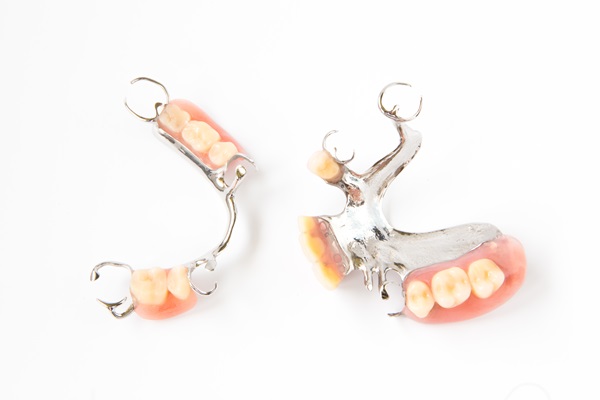 Dental implants are restorations that dentists use to replace missing teeth. Patients interested in this treatment must determine if they are an ideal candidate for this procedure. Systemic health conditions such as low bone density can create challenges for dental surgery. The patient should disclose all health history concerns to the dental team. Together, the patient and dentist can choose a treatment plan that is most beneficial for the patient's unique situation.
Dental implants are restorations that dentists use to replace missing teeth. Patients interested in this treatment must determine if they are an ideal candidate for this procedure. Systemic health conditions such as low bone density can create challenges for dental surgery. The patient should disclose all health history concerns to the dental team. Together, the patient and dentist can choose a treatment plan that is most beneficial for the patient's unique situation.
3 considerations about bone density and dental implants
Conditions that indicate low bone density include osteoporosis and osteopenia. When reviewing the patient's medical history, a dentist may see this condition as a red flag for dental implant surgery. The dentist must discuss these findings with the patient to determine the most suitable treatment.
1. History of bisphosphonate therapy
Patients with osteoporosis or osteopenia may undergo bisphosphonate therapy to manage the condition. Doctors typically render this treatment intravenously. While the IV bisphosphonates help manage damage done by osteoporosis, this therapy can cause dental complications.
After a dentist extracts a tooth, bone fills in the extraction site. In patients who have taken bisphosphonates, though, this does not always happen. When the extraction site is left exposed, necrosis of the jaw can occur, which is painful and difficult to manage.
A dentist may consider prior bisphosphonate therapy a total contraindication to dental implants. If no alternative replacement options are available, the dentist can consult with the patient's physician to determine the right course of action.
2. Bone height and width
When a tooth is missing for a long time, the jawbone in that area may resorb. Essentially, the bone shrinks because it is no longer supporting a tooth. In this situation, the dentist may recommend additional measures before implant placement. The most common adjunctive treatment is bone grafting, which is necessary if the patient does not have ample jawbone height and width.
3. General healing concerns
After a dentist places dental implants, the jawbone fuses to the titanium prosthesis. This fusion, known as osseointegration, is crucial for the long-term success of an implant. The patient's immune response plays a critical role in osseointegration.
Some vitamins and minerals affect bone density. If a patient is deficient in vitamin D or calcium, the jawbone may not respond well to implant placement. In addition, chronic medical conditions such as heart disease and diabetes can cause delayed healing. For this reason, patients should be in adequate health before undergoing this dental procedure.
Conclusion
Dentists began widely using dental implants within the last 50 years. This treatment is highly effective at replacing missing teeth, so it has become the standard of care in most situations. However, medical concerns make other options more practical for some patients. To determine the ideal treatment, the patient and dentist must work together to evaluate the patient's medical history. Those wanting to learn more about this dental prosthesis should consult with a dentist today.
Request an appointment or call San Dimas Family and Sedation Dentistry at 909-305-2300 for an appointment in our San Dimas office.
Recent Posts
Many patients who have missing teeth consider dental implants as an option to restore the look and function of their smile. When deciding whether to have the procedure, it is important to learn as much as possible about the treatment.There are a variety of things patients should know about dental implants when considering the procedure.Dental…
The teeth are an essential part of the human body, which is why so many people turn to dental implants. Without enough teeth, it is harder for people to bite into and chew their food and harder to enunciate certain words when speaking. When many teeth are missing, the shape of the face will change,…
Many people in the United States have dental implants, but that does not change the fact that misinformation about the procedure still runs rampant. Check out these myths and facts about them to help you determine if implant surgery is right for you.There are many myths about implants. Learn about the myths and the facts…


